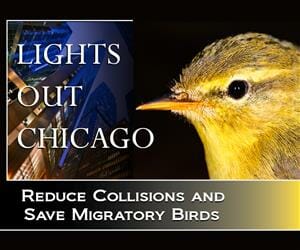Just How ‘Fair’ is the City’s New Fair Workweek Ordinance?
By Michael Cornicelli, BOMA/Chicago Executive Vice President
Most BOMA/Chicago members know us as the champion for all aspects of the commercial real estate industry through our education, advocacy and networking efforts. Yet an interesting fact many people are surprised to learn is that one of the primary reasons for our founding back in 1902 was the representation of building owners and managers in labor relations.
In fact, our first effort was negotiation of an agreement with the Office Building Janitors and Window Washers Union No. 10345 on February 14, 1903. Ever since then we have successfully negotiated collective bargaining agreements each year with our janitorial, engineering and security service workers that provided competitive wages, benefits and working conditions for 117 years. We are proud of the productive relationships we have nurtured with unions such as SEIU Local 1 and IUOE Local 399 and the 34,000 building service workers in our buildings.
So why the brief history lesson? It’s simple. A new ordinance that will impede our federal right to collectively bargain with unions representing our building service workers was recently passed by the Chicago City Council and has triggered our advocacy efforts on behalf of our members – the so-called Chicago “Fair” Workweek Ordinance. This is the latest in a series of efforts by organized labor and City government to use the legislative process instead of the collective bargaining process that has worked for all of us for over one hundred years.
By way of background, the Ordinance – passed this year by City Council on July 24 and scheduled to take effect July 1, 2020 – will require some Chicago employers to publish employee schedules two weeks in advance, will limit our ability to change employees’ schedules, imposes mandatory overtime, and prevents us from directing our workforce in the best interests of our customers and our operational needs. A variety of employers are covered by the new law, including janitorial, engineering and security contractors in our buildings. But the most troubling aspect of this new law is its provision that makes it applicable to collective bargaining agreements unless the parties explicitly state in their agreement that it does not. We believe that provision clearly conflicts with our right to collectively bargain with our workers’ unions – a right granted by the National Labor Relations Act and the National Labor Relations Board.
As it stands, the Ordinance gives the unions with which we negotiate a chit they can bring to the bargaining table without any cost to them. If BOMA/Chicago wants to countermand that gift, we are forced to give up something else of value in those negotiations. That is not what federal law requires or allows.
BOMA/Chicago cannot support that provision of the Ordinance, and we have publicly expressed our opposition. During the City Council hearing process earlier this year, we raised multiple objections on behalf of our members to the proposed ordinance on various occasions, including letters, testimony and in-person meetings with the Office of the Mayor and the City Council Committee on Workforce Development. We even drafted and offered up remedial language, which the Committee and City Council did not incorporate into the final Ordinance. We have now reached an impasse that requires action.
On Friday, November 1, 2019 BOMA/Chicago filed a lawsuit in the Federal District Court for the Northern District of Illinois against the City of Chicago, seeking a court declaration that the Chicago Fair Workweek Ordinance is preempted by the NLRA and enjoining the City of Chicago from enforcing the Chicago Fair Workweek Ordinance against BOMA/Chicago’s members.
As such, we have filed a lawsuit against the City in federal court in Chicago that simply seeks the removal of the waiver mandate language from the Ordinance. Why? In short, it places limitations and imposes unnecessary burdens on building owners and managers and some of our Affiliate Members during the collective bargaining process that will negatively impact their businesses. More specifically, we at BOMA/Chicago strongly believe the following:
- Parties to a collective bargaining relationship should determine the subjects of bargaining, including scheduling if they choose, but the Ordinance requirement for an express waiver mandates that employers bargain over a topic that should be left to the parties to decide.
- The Ordinance should not apply to employees in the covered industries whose terms and conditions of employment are set by collective bargaining agreements.
- There is no legitimate basis for the selective inclusion of some industries while excluding numerous other industries from the Ordinance.
- By exempting the collectively bargained agreements of employers who are not in a covered industry, the Ordinance unfairly discriminates in their favor and constitutes “special legislation” forbidden by the Illinois Constitution.
- The waiver mandate unlawfully intrudes upon the collective bargaining process between BOMA/Chicago and the labor unions who represent employees in the covered industries.
The bottom line is that collective bargaining subjects should be decided in accordance with the National Labor Relations Act and the parties who conduct collective bargaining on behalf of their members. Any mandate by a legislative body that is selectively targeting only certain industries with a standard that clearly favors one party over the other doesn’t sound “fair” to me.

